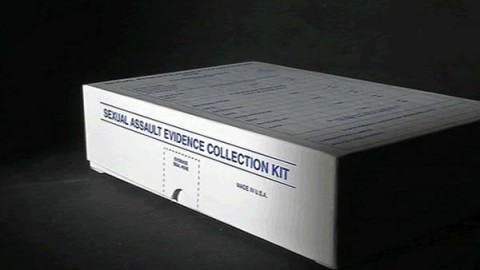Law enforcement agencies across Arizona are digging up untested sexual assault kits under new efforts driven largely by Gov. Doug Ducey
The latest count of untested kits reveals Maricopa County alone has at least 4,000.
June 21, 2016
PHOENIX — Law enforcement agencies across Arizona are sifting through evidence lockers looking for every last untested sexual assault kit under new efforts driven largely by Gov. Doug Ducey.
It's part of a push across the country to cut the backlog of untested DNA evidence in sexual assault cases. The samples went untested for a variety of reasons, such as cases where the parties involved agreed that sexual contact occurred but disagreed about whether it was consensual.
But the kits are now considered a valuable tool in identifying serial offenders. Test results can be entered into a database that can lead officials to discover whether an assailant is a repeat offender.
The latest count of untested kits reveals Maricopa County alone has at least 4,000.
Behind each kit is a person, usually a woman, who underwent an intimate and thorough examination in the aftermath of a suspected sexual assault.
"They go through this in the hope that evidence will be used to identify an offender and get that person off the streets," said Ilse Knecht, director of policy and advocacy for the Joyful Heart Foundation, a victim's advocacy group.
The governor was outraged to hear about the untested kits, his spokesman Daniel Scarpinato said.
"We need to have a process," Scarpinato said. "It shouldn't be a patchwork based on what county or city you are in. Women who are victims should know how this is going to be dealt with from a statewide perspective."
Arizona joins a long list of states confronting the issue.
This spring, Idaho lawmakers signed off on a statewide system for collecting and tracking DNA evidence of sexual assault, implementing a timeline if police decide to send the evidence to a state forensic laboratory for testing, unless the victim requests otherwise.
In Nevada, lawmakers set aside almost $3.7 million late last year to test about 7,500 sexual assault evidence kits languishing in police vaults around the state, including some in Las Vegas dating back 30 years. The effort comes after Republican Gov. Brian Sandoval signed a law extending to 20 years the statute of limitations for reporting sex assaults in Nevada.
The impetus for the Arizona effort is Ducey's task force, which includes the Maricopa County Attorney's Office and the Arizona Department of Public safety. Earlier this year, Ducey called for changes in his state of the state address. Since then, he's signed an executive order forming a task force to come up with ways address the untested kits.
The task force is expected to make a full accounting of the kits and offer recommendations to the governor by October.
Ducey also included $500,000 in next year's budget to deal with the state's untested kits.
But with an average cost of $600 per kit for testing, the new funding will cover less than a quarter of untested kits in Maricopa County.
Scarpinato called the funds a starting point but said the governor was open to providing additional resources to make sure the job gets finished.
Arizona law enforcement agencies already are embracing the changes, though they refuse to say practices that led to the backlog were wrong.
"To say that we did it the best — we did really good, but we always could do better," said Mary Roberts, assistant Phoenix police chief.
Roberts said the old way of thinking was that it didn't always make sense to test every kit.
She described a case where a victim was sexually assaulted and tested, but police obtained better evidence from fluids left on a T-shirt. Roberts thought at the time there was no point in testing that kit because police arrested and a jury convicted the criminal based on evidence from the shirt.
But more and more law enforcement agencies are looking to test all kits to enter the DNA into a national database looking for repeat offenders.
"Now we are looking with wide vision at the predator nature of these types of offenses," she said.
Roberts stressed that kits go untested for a variety of reasons, but the practice faces new scrutiny as advocacy groups, law enforcement and attorneys work together to devise better methods.
Law enforcement owes it to victims to see if those cases can be investigated, said Jon Eliason, special victims division chief for the Maricopa County Attorney's Office. The office received a $1.9 million grant to help resolve the backlog earlier this year, Eliason said.
Knecht said the grant and the governor's efforts are examples of the reforms happening around the country.
"You have to start somewhere," she said. "Everybody wants to make their community safer. They want to solve crime."
http://www.greenfieldreporter.com/view/story/8ead5bcaddc14ca8a1ef2f39afc9a21a/AZ--Untested-Rape-Kits



